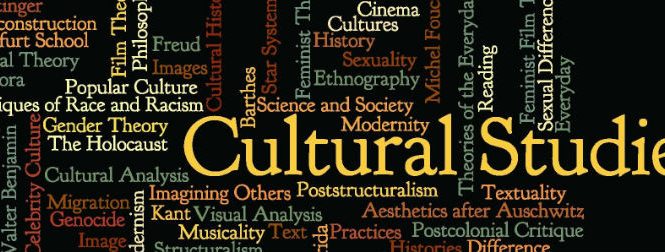Chapter#8: THE EMERGENCE OF CRITICAL AND CULTURAL THEORIES OF MASS COMMUNICATION In this chapter, we will trace the emergence of theories directly addressing questions about the way media might produce profound changes in social life through their subtle influence on the myriad of social practices that form the foundation of everyday life. These new perspectives argued that media might have the power to intrude into and alter how we make sense of ourselves and our social world. Media could alter how we view ourselves, our relationship to others, even the image that we have of our body. Culture The learned behavior of members of a given social group CHANGING TIMES Media have become a primary means by which most of us experience or learn about many aspects of the world around us. Even when we don’t learn about these things directly from media, we learn about them from other people […]
FOCUS ON FUNCTIONALISM AND CHILDREN
MOVING BEYOND LIMITED EFFECTS: FOCUS ON FUNCTIONALISM AND CHILDREN Functionalism Theoretical approach that conceives of social systems as living organisms whose various parts work, or function, together to maintain essential processes Communication systems theory Theory that examines the mass communication process as composed of interrelated parts that work together to meet some goal Social cognitive theory Theory of learning through interaction with the environment that involves reciprocal causation of behavior, personal factors, and environmental events THEORIES OF THE MIDDLE RANGE AND THE FUNCTIONAL ANALYSIS APPROACH Merton (1967, p. 68) described middle-range theory as follows: Middle-range theories consist of limited sets of assumptions from which specific hypotheses are logically derived and confirmed by empirical investigation. These theories do not remain separate but are consolidated into wider networks of theory. These theories are sufficiently abstract to deal with differing spheres of social behavior and social structure, so that they transcend sheer description […]
THE RISE OF LIMITED-EFFECTS THEORY
THE RISE OF LIMITED-EFFECTS THEORY Two wars—one imaginary, one real—helped move mass communication theory away from notions of powerful and subversive mass media to a more moderate and benign view. The War of the Worlds researchers, led by Hadley Cantril, were part of a vanguard of social scientists who transformed our view of how media influence society. Within twenty years of Welles’s broadcast, the way many scholars looked at mass media had been radically altered. They no longer feared media as potential instruments of political oppression and manipulation, but instead portrayed mass communication as a relatively benign force with much potential for social good. Researchers gradually came to see media’s power over the public as limited—so limited that no government regulations were deemed necessary to prevent manipulation. limited-effects perspective The guiding idea that media have minimal or limited effects THE DEVELOPMENT OF LIMITED-EFFECTS THEORY The people who developed limited-effects theory […]
Communication & International Communication
Communication & International Communication 1. What is Communication? • The word communication has originated from a Latin word “Communes” which means something common. • Communication is a process of exchanging information, ideas, thoughts, feeling and emotions through speech signals, writing or behavior. • In communication process, a sender encodes a message and then using a medium and send it to appropriate feedback using a medium 3. Importance of Communication • Express thoughts, ideas and feelings • Creating awareness • To fulfill a goal • Highlight issues • Progress, development • Educating the masses etc. 4. Process of Communication 5. Types of Communication • People communicate with each other in a number of ways that depend upon the message and its context in which it is being sent. • Types of communication based on the communication channels used are – • Verbal Communication • Nonverbal Communication 6. Nonverbal Communication • Nonverbal […]
Radio and international communication & The battle of the airwaves
As with other new technologies, Western countries were the first to grasp the strategic implications of radio communication after the first radio transmissions of the human voice in 1902. Unlike cable, radio equipment was comparatively cheap and could be sold on a mass scale. There was also a growing awareness among American businesses that radio, if properly developed and controlled, might be used to undercut the huge advantages of British-dominated international cable links (Luther, 1988). They realized that, while undersea cables and their landing terminals could be vulnerable, and their location required bilateral negotiations between nations, radio waves could travel anywhere, unrestrained by politics or geography. At the 1906 international radiotelegraph conference in Berlin, 28 states debated radio equipment standards and procedures to minimize interference. The great naval powers, who were also the major users of radio (Britain, Germany, France, the USA and Russia), had imposed a regime of radio […]
The Study of Political Communication ( review )
Chapter #3 : The Study of Political Communication (Review) The study of political communication is popularly believed to have begun with television, it actually dates back nearly a century. It was Walter Lippmann, the American journalist writing in the 1920s, who eloquently and influentially described the ability of the media to mold the images people carried in their heads about a distant world that was “out of reach, out of sight [and] out of mind.” EARLY HISTORY OF POLITICAL COMMUNICATION SCHOLARSHIP Back to Lippmann in the 1920s. After the war, Lippmann became disillusioned by the ways that Creel had used the powers of persuasion and coercion to influence the mass public. He rejected classic liberal democracy concepts, such as the power of rational thought or the ability of the press to relay accurate information. Instead, he concluded that people were prone to psychologically distort information and engage in stereotyping. “We […]
